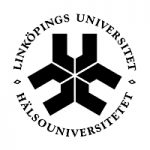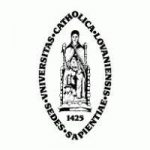项目介绍
Lund University was founded in 1666 and is repeatedly ranked among the world’s top universities. The University has around 47 000 students and more than 8 800 staff based in Lund, Helsingborg and Malmö. We are united in our efforts to understand, explain and improve our world and the human condition.
Lund University welcomes applicants with diverse backgrounds and experiences. We regard gender equality and diversity as a strength and an asset.
Description of the workplace
The vacancy is situated in the Manufacturing Processes research group within the Division of Production and Materials Engineering (IPROD) within the Department of Mechanical Engineering Sciences, LTH/LU. The division is involved in research, development, teaching, and industrial collaboration in the field of materials and production engineering. The projects undertaken are related to Industry 4.0, focusing on manufacturing processes and technology, materials science, digitalization of manufacturing processes and sustainable production. The subject area is interdisciplinary, often combining fundamental and applied research.
The division consists of approximately 25 colleagues, including six doctoral students and three postdoctoral researchers. Our premises are in the recently renovated M-building on LTH’s campus in Lund. More information about the department can be found here: Division of Production and Materials Engineering
The project is carried out within the AIM-NEXT MSCA Doctoral Network – Accelerate the design and Insertion of nonCRM hard Materials for Next generation EXTreme applications. The ambition of AIM-NEXT is to reshape our knowledge and the way of designing the next generation of non-CRM hard materials for extreme applications. It is implemented through a broad programme of experimental, theoretical and modelling research, on the basis of innovative material design, synthesis and sintering, together with deeper understanding of material performance and failure. A research environment is then created where the 10 Doctoral Candidates will work to bridge the remaining knowledge gaps with the new tools, skills and competencies necessary to come from an original material design to its predictable performance in the shortest possible time. More information about the AIM-NEXT MSCA Doctoral Network can be found here: AIM-NEXT
Work duties
As a doctoral student in the Manufacturing Processes group, you will explore new materials, product designs, processes, and approaches in modern manufacturing. The focus of the project includes investigation of the degradation of the thermo-mechanical properties of recycled hard metal tools when subjected to high pressure/high temperature deformation (e.g., creep) as well as during high speed machining. The work encompasses planing, designing, and conducting advanced experiments along with the development and application of Multiscale-Multiphysics simulation tools for the prediction of tool material machining performance in turning. Your theoretical work will include modelling of tool material degradation, including finite element modelling and simulation of plastic deformation in machining. Hence your work will create a seamless fusion of experiments and modelling which enables closing the knowledge gap between material design and its performance. Your work will focus on fundamental and applied knowledge and solutions of high value for industries and society, by supporting their sustainable development.
The activities are placed at Lund University at the Division of Production and Material Engineering; however the training also implies 2 secondments of 9 months total at RWTH-Aachen University (3 months) in Germany and at Seco Tools AB (6 months) in Fagersta, Sweden. Moreover, you will attend international conferences, participate in periodical project meetings and training schools as well as in specialised courses at different universities to complement your knowledge. A certain amount of travelling is foreseen in relation to these activities.
The main duties of doctoral students are to devote themselves to their research studies which includes participating in research projects and third cycle courses. The work duties will also include teaching and other departmental duties (no more than 20%).
We also appreciate your participation in common tasks related to general institutional duties, seminars, knowledge transfer, and collaboration with industry, among others.
Admission requirements
A person meets the general admission requirements for third-cycle courses and study programmes if the applicant:
- has been awarded a second-cycle qualification, or
- has satisfied the requirements for courses comprising at least 240 credits of which at least 60 credits were awarded in the second cycle, or
- has acquired substantially equivalent knowledge in some other way in Sweden or abroad.
A person meets the specific admission requirements for third cycle studies in Mechanical Engineering Sciences if the applicant has:
- at least 90 higher education credits relevant to the subject area, including at least 60 second-cycle credits, or
- a second-cycle degree in a relevant field.
Finally, the student must be judged to have the potential to complete the programme.
Additional requirements:
- very good oral and written proficiency in English.
- very good knowledge in materials science and engineering.
- good knowledge in production and manufacturing processes.
- good knowledge in programming.
- good problem-solving skills and linguistic analysis ability.
A person meets the requirements for MSCA Doctoral Network programme if the applicant:
- has not resided in Sweden for more than 12 months in the 3 years immediately before the recruitment date, i.e. during the period 2021-09-31 to 2024-09-30 for work or studies as main occupation.
- If you do not already have a doctoral degree.
Assessment criteria
Selection for third-cycle studies is based on the student’s potential to profit from such studies. The assessment of potential is made primarily on the basis of academic results from the first and second cycle. Special attention is paid to the following:
- Knowledge and skills relevant to the thesis project and the subject of study.
- An assessment of ability to work independently and to formulate and tackle research problems.
- Written and oral communication skills.
- Other experience relevant to the third-cycle studies, e.g. professional experience.
Other assessment criteria:
- theoretical knowledge of metallic, ceramic or composite materials.
- experience in handling manufacturing or engineering equipment, including measurement equipment.
- hands-on experience in modelling and FE simulation of manufacturing processes.
- ability to develop, implement, and apply relevant scientific models to data and critically assessing the results.
- programming experience (preferably in Python or Matlab).
- materials science and engineering, particularly metals, composites and coatings.
- finite element modelling and simulation (e.g. using ABAQUS, ANSYS).
- machining processes or other extreme manufacturing processes.
- metallographic sample preparation.
- optical and electron microscopy.
- collaboration with industrial partners.
Consideration will also be given to good collaborative skills, drive and independence, and how the applicant, through experience and skills, is deemed to have the abilities necessary for successfully completing the third cycle programme.
We offer
Lund University is a public authority which means that employees get particular benefits, generous annual leave and an advantageous occupational pension scheme. Read more on the University website about being a Lund University employee Work at Lund University.
Terms of employment
Only those admitted to third cycle studies may be appointed to a doctoral studentship. Third cycle studies at LTH consist of full-time studies for 4 years. A doctoral studentship is a fixed-term employment of a maximum of 5 years (including 20% departmental duties). Doctoral studentships are regulated in the Higher Education Ordinance (1993:100), chapter 5, 1-7 §§.
How to apply
Applications shall be written in English and include a cover letter stating the reasons why you are interested in the position and in what way the research project corresponds to your interests and educational background. The application must also contain a CV, degree certificate or equivalent, and other documents you wish to be considered (grade transcripts, contact information for your references, letters of recommendation, etc.).
Additonally, all required information has to be packed in a single-PDF file in the order showed above and using a file name with the following format: surname_name_DC.pdf
This document package needs to be addtinally e-mailed to AIM-NEXT contact address: aimnext@upc.edu indicating as email’s subject “AIM-NEXT DC APPLICATION”.
This additional step is to ensure that the international Selection Commitee of the AIM-NEXT. More information about the AIM-NEXT international evaluation and application procedures can be found here: AIM-NEXT apply
Welcome to apply!
LTH is Lund University’s Faculty of Engineering. At LTH we educate people, build knowledge for the future and work hard for the development of society. We create space for brilliant research and inspire creative advancements in technology, architecture and design. We have nearly 10,000 students. Every year, our researchers – many of whom work in world-leading profile areas – publish around 100 theses and 2 000 scientific findings. In addition, many of our research and degree projects are transformed into innovations. Together we explore and create – to benefit the world.
联系方式
电话: +46 (0)46 222 0000相关项目推荐
KD博士实时收录全球顶尖院校的博士项目,总有一个项目等着你!






